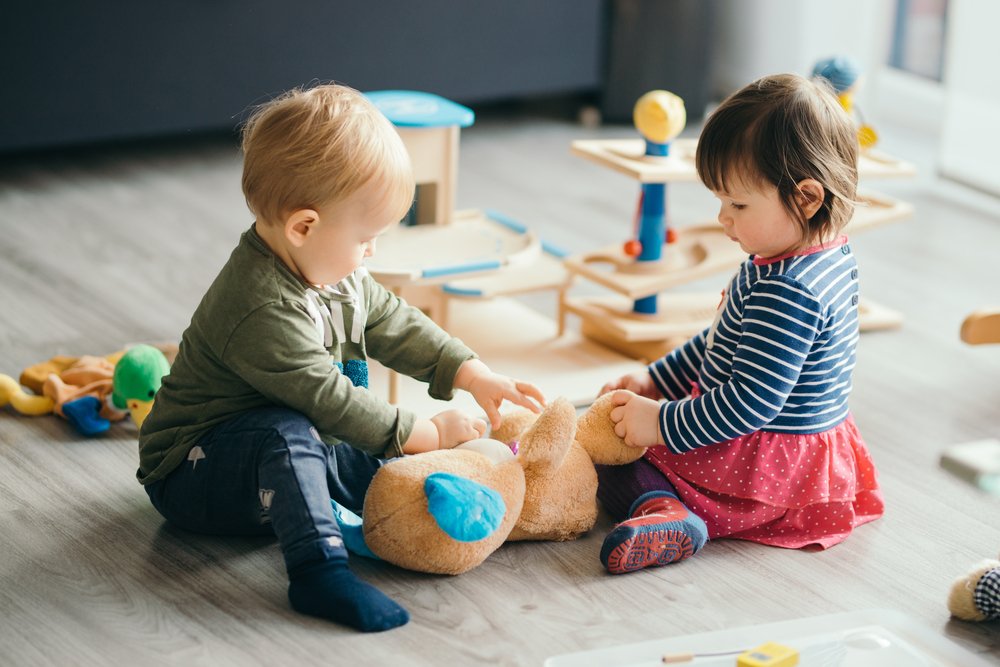Key Points:
- Interacting with peers is crucial for social and emotional development, helping children learn social skills such as sharing, taking turns, cooperating, and setting limits.
- Parents can support their child’s social development by teaching social skills, modeling trust and consistency, and providing opportunities for practice in making friends.
Beyond being lots of fun and encouraging imaginative and physical play, being friends with other kids and interacting with peers is an important building block for your preschooler’s development of social and emotional skills.
According to The University of Georgia’s Cooperative Extension Service, having frequent experiences with other children can help your child learn how to handle social interactions and challenging, but normal, situations; like being fair, sharing, taking turns, setting and respecting limits, arriving at a compromise, and cooperating with others.
Although for some kids making friends comes naturally, other children might need to experiment with some trial and error before feeling comfortable enough to make new friends. Be patient and supportive as your kid learns new social skills, and try to give helpful and positive feedback on their progress. Giving a bit of praise, smiling, or hugging goes a long way with preschoolers!
Here are some of the recommendations made by the child psychologists authors of the book What to expect: The toddler years:
- Teach your kid social skills. Children that are friendly, take turns, show kindness, and tolerate frustration tend to make friends easily. Help your kid identify these behaviors and point them out when other’s do them.
- Show and tell. Be specific about the things that might make it easier to play with other kids or to make new friends. For example, if you instruct your kid to be nice with their playmates, show them that this means sharing or taking turns, smiling, or saying “please” and “thank you”. If you tell your child that playing too harshly or being aggressive will push away other kids, explain that hitting or biting hurts and how it makes other kids sad. You can also use this as an opportunity to learn to apologize by saying “I’m sorry”.
- Model trust, support, and consistency. Young kids learn their starter-pack of friendship skills from their relationships with parents, caretakers, and siblings.
- Practice makes perfect. Children need to try out things by themselves in order to acquire new skills, so giving them the opportunity to practice making friends is essential.








